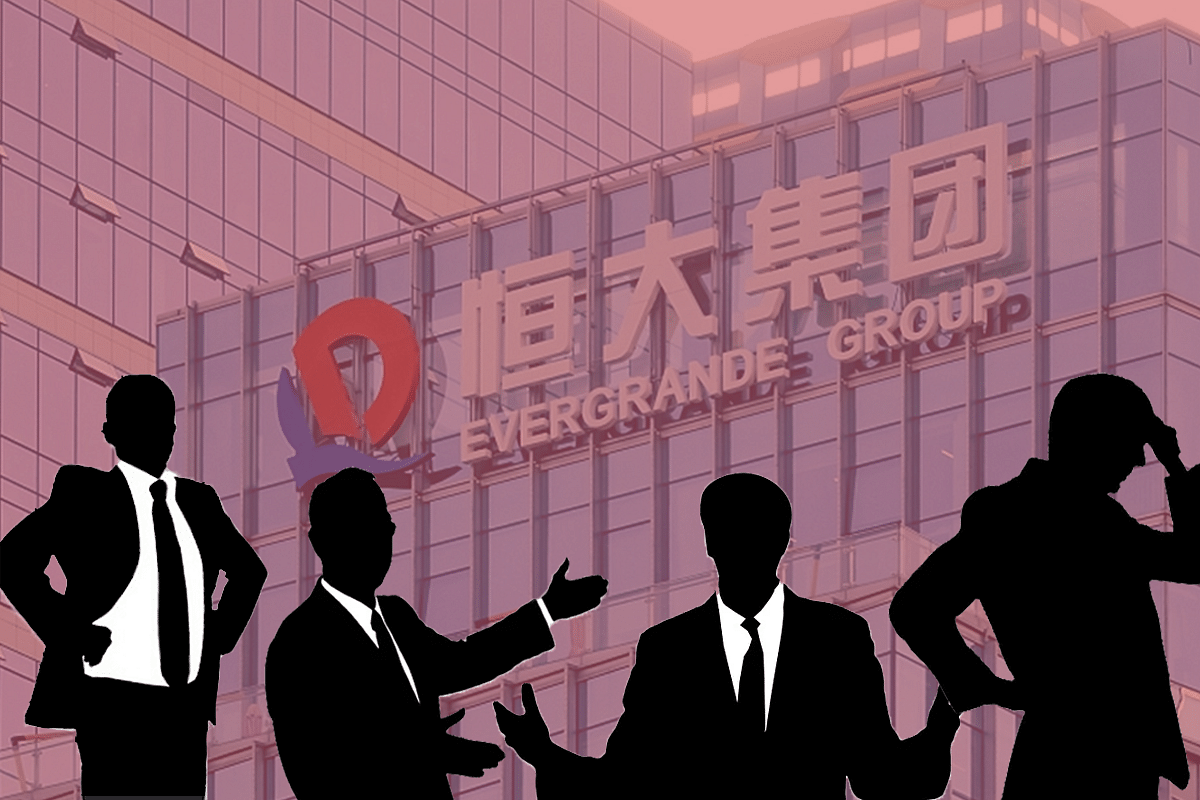News Brief
China Is Gearing Up For Debt-Ridden Evergrande's Eventual Collapse
- Reports emerging from China suggest that authorities have asked local governments to prepare for the debt-ridden company's eventual collapse.

Evergrande on the verge of collapse.
China's largest real estate company Evergrande is now the world's most indebted property developer, with more than $300 billion in liabilities. While there are concerns that its financial crisis could have a significant effect on the global financial markets, according to a new report, Chinese authorities have asked local governments to prepare for the debt-ridden company's eventual collapse.
According to a report by The Wall Street Journal, officials familiar with the discussions, described the orders as "getting ready for the probable storm", stating that local government agencies and state-owned firms have been told to jump in at the last minute to handle the aftermath if Evergrande fails to manage its financial affairs.
The officials also said that local governments have been tasked with averting unrest and limiting the rippling effect on property buyers and the larger economy.
Evergrande failed to respond to a deadline for paying $83.5 million in bond interest and investors have not been paid or heard from the company, according to a Reuters report. The corporation is now in new territory, with a 30-day grace period ahead of it. If that period passes without payment, it will default.
Last week, China's central bank poured cash into the banking system one more time, considered as a sign of market support. However, Chinese state media has provided no hints about a bailout package. Meanwhile, Evergrande hired financial consultants and issued a default warning, causing global markets to plummet on 20 September because of the fear of contagion, albeit they have since stabilised.
The challenge for policymakers is how tough they can be on financial discipline without inciting social unrest, given that a dramatic collapse at Evergrande might suffocate a housing market that contributes 40 per cent of Chinese household wealth.
Last week, angry suppliers, home buyers and investors demonstrated their dissatisfaction, which might escalate if the default causes crises at other developments. Evergrande has stated that such investors will be prioritised, and one coupon payment on a domestic bond was handled this week. However, it has said nothing about a $47.5 million payment due next week.
Bondholders are beginning to believe it will be a month or more before things clear up, and markets have already priced in a significant loss. Jennifer James, a portfolio manager and lead emerging markets analyst at Janus Henderson Investors, told Reuters: "Current market pricing estimates that investors in Evergrande's dollar bonds are likely to recover very little."
The most likely consequence is that the corporation will negotiate with creditors to come up with a restructuring arrangement, James said, while cautioning that if such a deal is botched, "the loss of confidence could have contagion effects".
Evergrande, which exemplified the borrow-to-build business model, has been in financial problems in recent months as Beijing tightened controls in the property sector to curb debt levels and speculation. Now, investors are concerned that a downturn may spread to creditors, especially Chinese and international banks.
The Evergrande Effect
According to experts, cryptocurrencies lost billions of dollars within 48 hours as the Evergrande crisis wreaked havoc on the market. On 22 September, the market value of cryptocurrencies had dropped to $1.7 trillion, down 16.5 per cent from $2.12 trillion on 20 September, resulting in a loss of almost $350 billion.
In terms of price declines, Bitcoin fell 15 per cent from $47,211 to $39,876 over the same time period, while Ethereum dropped roughly 18 per cent from $3,325 to $2,730.
Similarly, oil fell from its highest closing in almost two months as investors worried about the market risk posed by Evergrande's continuous turmoil.
Additionally, the world's richest 500 people lost billions in a global stock market rout sparked by concerns about the Evergrande Group. It was reported that Elon Musk, Jeff Bezos, Bill Gates, Mark Zuckerberg, Warren Buffett and other members of the world's top 10 wealthiest persons witnessed a sudden drop in their net worth.
However, Kotak Mahindra AMC managing director Nilesh Shah told Business Standard in the latest interview that Evergrande is more of a China problem than a global one. According to him, there would be no global market contagion, merely a short-term setback and its impacts may include real estate slowdown and metal stocks may suffer.
He noted that “events like Evergrande can act as a catalyst for the market correction. Evergrande crisis may force investors to look at India as an alternative to China.”
Shah also said: “We have a good opportunity to narrow the economic gap with China. If PLI scheme delivers, we may well become the manufacturer to the world, [and] investors looking for growth will then come to India.”
Support Swarajya's 50 Ground Reports Project & Sponsor A Story
Every general election Swarajya does a 50 ground reports project.
Aimed only at serious readers and those who appreciate the nuances of political undercurrents, the project provides a sense of India's electoral landscape. As you know, these reports are produced after considerable investment of travel, time and effort on the ground.
This time too we've kicked off the project in style and have covered over 30 constituencies already. If you're someone who appreciates such work and have enjoyed our coverage please consider sponsoring a ground report for just Rs 2999 to Rs 19,999 - it goes a long way in helping us produce more quality reportage.
You can also back this project by becoming a subscriber for as little as Rs 999 - so do click on this links and choose a plan that suits you and back us.
Click below to contribute.
Latest